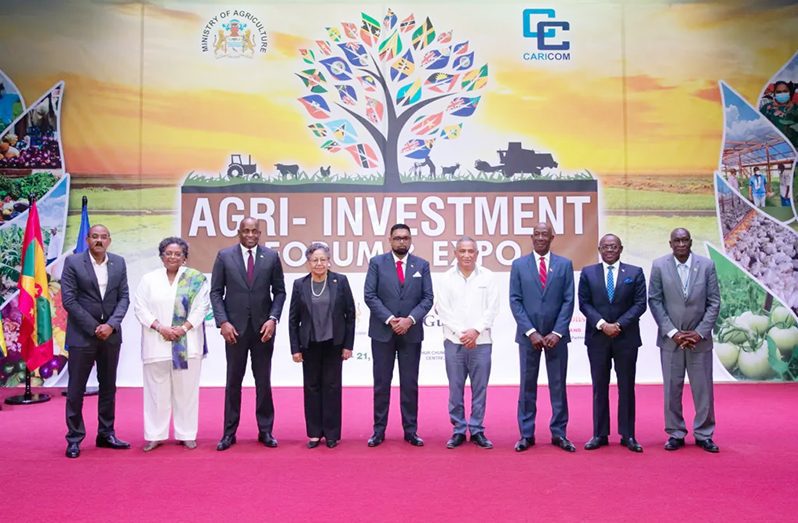technical teams, ministerial task force collaborating to resolve remaining issues, Minister Mustapha says
WITH the Caribbean Community (CARICOM) looking to achieve its ambitious food security targets by 2025, efforts are underway to address non-tariff barriers that limit the trade of produce to some regional states.
Agriculture Minister, Zulfikar Mustapha, who chairs the special ministerial task force on food production and food security, recently told reporters on the sidelines of an event that Guyana is currently engaging officials in Trinidad and Tobago to address the barrier to the importation of honey to the island.
The non-conformity of Trinidad and Tobago’s legislation governing the importation or transiting of honey has been a long-standing issue continuously raised before the Council for Trade and Economic Development (COTED).
“We have a team working very aggressively to not only remove that barrier, but other non- tariff barriers that are affecting products from Guyana and parts of the Caribbean,” Mustapha said.
According to Mustapha, officials are closer to settling an agreement, noting: “They are coming closer to an agreement …I can’t give a timeline, but I [am] hoping very shortly. We are doing a lot of work in the ministerial task force; we are bringing the technical personnel together.”
Meanwhile, the Chairman of Guyana’s Private Sector Commission, Komal Singh, said that, in order for the region to achieve its goals, the remaining non-tariff barriers must be addressed sooner rather than later.
He said: “We must not neglect the opportunity to address some regional trade barriers which currently cause limitation to market growth and development.
“It is critical at this point in time that the private sector take the initiative to work on a more aggressive regional logistics approach where we can move our products and services easily around the region.”
Trinidad and Tobago’s honey, bees and bee products are guided by the island’s age-old Food and Drug Act of 1960 and Beekeeping and Bee products Act of 1935.
Both of these, however, are not in keeping with the Revised Treaty of Chaguaramas (RTC) as highlighted by COTED and has led to the total prohibition of honey from other countries to the island.
In 2012, a portion of Grenada’s honey was confiscated, while a US$3,000 fine was imposed on the Guyanese company Laparkan in 2015 for coming within one mile of the island’s shores.
The COTED has since stipulated that Trinidad and Tobago’s legislation be amended to provide for the trade in honey from its fellow member states; however, the conditions have not changed.





.jpg)








